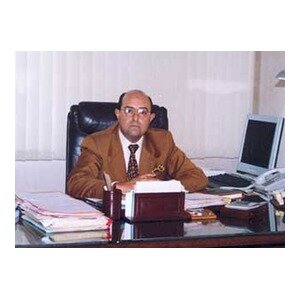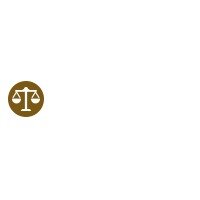Best Faith-Based Law Lawyers in Marrakesh
Share your needs with us, get contacted by law firms.
Free. Takes 2 min.
List of the best lawyers in Marrakesh, Morocco
About Faith-Based Law in Marrakesh, Morocco
Faith-Based Law in Marrakesh, Morocco, predominantly refers to the application of Islamic law, also known as Sharia, which is integrated into the country's legal system alongside civil law. This blend influences various aspects of daily life, including marriage, divorce, inheritance, and certain contractual matters. Sharia is applied most notably in personal status matters, meaning any legal issues closely related to family and personal rights often involve Faith-Based Law. In Marrakesh, as in other parts of Morocco, family courts specifically address these issues, and knowledge of Sharia is crucial for legal practitioners in such cases.
Why You May Need a Lawyer
There are numerous situations in which someone may require legal help with Faith-Based Law in Marrakesh:
- Marriage Contracts: Guidance is often needed to understand the implications of marriage contracts under Islamic law and to ensure they comply with both Sharia and civil requirements.
- Divorce Proceedings: Navigating the complexities of Talaq (divorce initiated by the husband) or Khula (divorce initiated by the wife) requires an understanding of both legal and religious stipulations.
- Inheritance: The division of an estate under Sharia can be intricate, involving fixed shares for different relatives, which can be further complicated if contested.
- Child Custody: Disputes concerning custody and guardianship of children often need resolution through understanding both the local secular laws and Sharia principles.
- Contractual Disputes: Contracts governed by or needing alignment with religious principles might require legal interpretation and enforcement.
- Religious Rights: Issues revolving around religious rights, such as religious freedom or conversion, may necessitate legal advice or representation.
Local Laws Overview
Faith-Based Law in Marrakesh, and Morocco generally, encompasses various local laws that integrate Sharia. Key aspects include:
- Family Code (Moudawana): This is the main legal framework governing personal status issues, incorporating significant elements of Islamic law.
- Inheritance Laws: Based on the Quranic injunctions, inheritance rules are strictly adhered to, with predetermined shares for specified heirs.
- Marriage Registrations: Legal provisions ensure that marriage contracts comply with both Islamic norms and civil registration requirements.
- Birth and Name Registrations: Local procedures must be followed, with names often reflecting Arabic heritage, influenced by cultural and religious norms.
- Judicial Structure: Family Courts oversee disputes relating to personal status, with judges trained in both civil and Sharia law.
Frequently Asked Questions
What role does Sharia play within the Moroccan legal system?
Sharia primarily governs personal status matters such as marriage, divorce, and inheritance. It is integrated into the Moroccan Family Code, ensuring that personal and family issues are resolved according to Islamic law.
Can non-Muslims be governed by Faith-Based Law in Marrakesh?
Non-Muslims are generally not subject to Sharia; however, matters of family law involving a Muslim party can sometimes bring Sharia into consideration.
How is divorce processed under Faith-Based Law?
Divorce can be initiated by either party but must adhere to local laws, requiring court intervention. Various types of divorce exist, including Talaq and Khula, each with specific legal and financial implications.
How is inheritance shared among heirs under Sharia in Morocco?
Inheritance distribution is strictly defined with fixed shares allocated to spouses, parents, children, and other relatives according to Islamic principles.
Is a prenuptial agreement recognized under Faith-Based Law?
Yes, stipulations can be made at the time of marriage, but they must conform to Islamic principles and local civil law requirements to be enforceable.
How are property disputes resolved under Faith-Based Law?
Property disputes, when related to family law, may involve Sharia principles, particularly if they involve inheritance. Resolution typically involves family courts.
What if one party does not adhere to an Islamic marriage contract?
The aggrieved party can seek redress through family courts, where judges will consider both the terms of the contract and compliance with Sharia.
Can women initiate divorce under Faith-Based Law?
Yes, women can initiate divorce through a process called Khula, where they return the dowry, but this needs to be legally processed through the courts.
Are there special provisions for child custody under Sharia?
Yes, custody is generally decided in the best interest of the child, with consideration given to the child's upbringing under Islamic principles.
How can one legally change their religious status in Morocco?
Conversion or change in religious status is sensitive and may require legal oversight to ensure compliance with both local laws and faith-based regulations.
Additional Resources
For assistance, one can refer to the following resources:
- Ministry of Justice: They offer valuable insights into the Moroccan legal system, including family law.
- Local Family Courts: Key for disputes relating to marriage, divorce, and inheritance.
- Islamic Council of Scholars: Provides guidance and interpretation of Sharia principles.
- Local Legal Practitioners: Seek lawyers who specialize in both civil and Islamic law for personalized advice.
- Community Faith-Based Organizations: They can offer support and mediation services in family-related matters.
Next Steps
If you require legal assistance in Faith-Based Law in Marrakesh, consider the following steps:
- Identify Your Needs: Clearly define your issue and what you hope to achieve through legal assistance.
- Research Legal Experts: Look for attorneys or legal firms that specialize in faith-based and family law.
- Schedule Consultations: Arrange meetings with potential lawyers to discuss your case and understand your options.
- Gather Required Documents: Collect any necessary documents related to your case, such as marriage certificates or contract agreements.
- Review Legal Strategies: Discuss with your lawyer the best approach to pursue, whether through negotiation, mediation, or litigation.
- Understand Legal Costs: Be aware of the potential costs involved and discuss payment plans or assistance programs if needed.
Start by reaching out to local resources and setting appointments with reputable attorneys to ensure you receive the necessary assistance for your specific situation.
Lawzana helps you find the best lawyers and law firms in Marrakesh through a curated and pre-screened list of qualified legal professionals. Our platform offers rankings and detailed profiles of attorneys and law firms, allowing you to compare based on practice areas, including Faith-Based Law, experience, and client feedback.
Each profile includes a description of the firm's areas of practice, client reviews, team members and partners, year of establishment, spoken languages, office locations, contact information, social media presence, and any published articles or resources. Most firms on our platform speak English and are experienced in both local and international legal matters.
Get a quote from top-rated law firms in Marrakesh, Morocco — quickly, securely, and without unnecessary hassle.
Disclaimer:
The information provided on this page is for general informational purposes only and does not constitute legal advice. While we strive to ensure the accuracy and relevance of the content, legal information may change over time, and interpretations of the law can vary. You should always consult with a qualified legal professional for advice specific to your situation.
We disclaim all liability for actions taken or not taken based on the content of this page. If you believe any information is incorrect or outdated, please contact us, and we will review and update it where appropriate.










